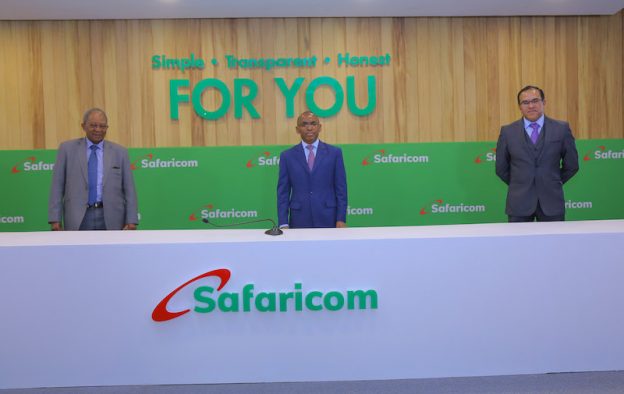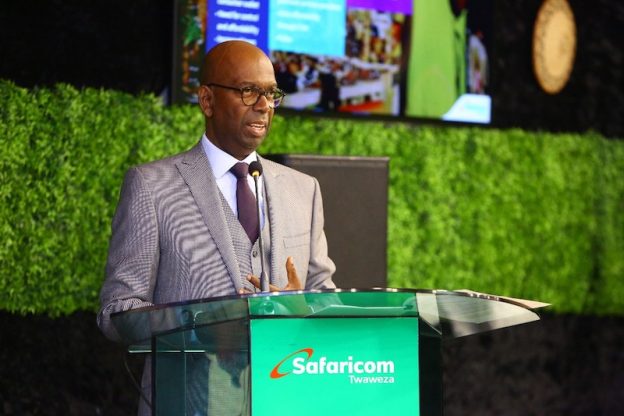This week marked the deadline for bids for two new Ethiopia telecommunication licenses on April 26. Two offers were received in Addis Ababa; one by MTN (Mauritius) and the other for a “Global Partnership for Ethiopia”, a consortium by Vodafone, Vodacom, Sumitomo and Safaricom.
This is part of an overdue privatization push by Ethiopia that has continued even as political tensions have flared up in different parts of the country. The licenses do not include mobile money, but that is something that currently monopoly, Ethio Telecom has been granted and hopes to launch soon. It is expected that others who did not bid for mobile licenses such as Orange may bid for the partial privatization of Ethio Telecom which has 50 million subscribers.
Can Safaricom grow in this market 110 million population strong-market? That has been a goal of Safaricom’s management for the last few years. But a January 2021 report by Citi Bank was negative on the “high risk, high return” venture which will impact Safaricom’s earnings in the short to medium term. This was due to the impact of Covid-19 on the risk profile of all potential investors in Ethiopia, but also as, by taking a controlling stake in the consortium, the Ethiopia operations will be consolidated in Safaricom’s financials. Citi expects that Safaricom would raise half a billion dollars of debt to contribute to the consortium which would put an end to special dividends paid by the firm.
After technical and financial evaluations of the two qualified bids, a decision is expected by mid-May 2021.
Also, see more about MTN, from their Nigeria listing.
EDIT May 24, 2021:
- The Global Partnership for Ethiopia welcomed the award of a license to operate telecom services in Ethiopia. Safaricom is the lead partner in the consortium which will establish a new company in Ethiopia that aims to start providing telecommunications services from 2022. The country has 112 million people and is introducing competition as part of economic reforms supported by the International Finance Corporation.
EDIT May 25, 2021:
- The consortium bid $850 million and will get a 15-year license, with the possibility of one extension of the same duration. Safaricom has incorporated an SPV, the Vodafone Ethiopia Holding Company in the UK, in which it owns 90% and Vodacom 10% – which will own a company in the Netherlands, that it intends to move to Kenya, and get shareholder approval at their upcoming AGM, to operate it as a subsidiary. The SPV will own 61.9% (Safaricom 55.7%, Vodacom 6.2%), and other shareholders will be Sumitomo (27.2%) and CDC (10.9%).
EDIT June 8, 2021:
- Vodacom CEO Shameel Joosub said their group serves 180 million in Africa with 58 million accessing financial services on M-Pesa, Africa’s largest mobile money platform that processes $24.5 billion a month. It has now expanded to international money transfers, loans, savings and lifestyles ad lifestyle and could be used to enable small Ethiopian businesses to access e-commerce. Also, the launch of mobile money services in 2022 will ensure financial inclusion and close the gender gap.
- Prime Minister Abiy Ahmed Ali said Ethiopia will next offer 40% of Ethio Telecom to a foreign investor with another 5% to the Ethiopian public. Also, they will adjust policy (mobile money) and re-tender the second national telco license as he called on all the telco players to coordinate to connect everyone.
EDIT July 5, 2021
- Safaricom appointed a new Managing Director for Ethiopia, Anwar Soussa.
- Safaricom released the notice for the AGM on July 30 where shareholders will be asked ratify the Ethiopia deals.
EDIT July 15: The Ethiopian Communications Authority (ECA) issued a fifteen-year telecommunications operator license to “Safaricom Ethiopia PLC,” a newly incorporated local company.
EDIT: October 6 2022: Safaricom Ethiopia launched its mobile telecommunications network and services in Addis Ababa, Ethiopia, with 2G, 3G and 4G mobile services in 11 towns. While it builds a network to span 25 towns by April 2023, it also has infrastructure sharing and interconnection agreements with Ethio Telecom.
Also comes with a mobile money license for M-Pesa:
Continues



